Smoker Cooking Secrets You Should Know and Share With Your Closest Friends
The ways of the pitmaster can be secretive, and sharing the smoker cooking secrets can be cause for severe punishment. But I know that I'm safe, because you won't tell anybody that I let the cat out of the bag. Will you?
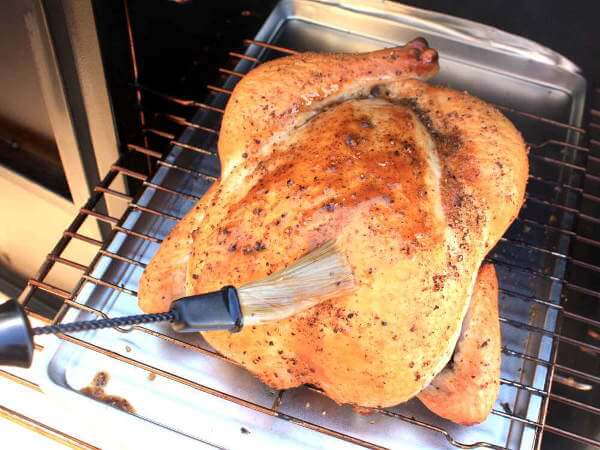
Passing The Flame - You Deserve to Know The Secrets
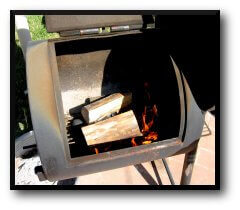
Successful smoker cooking requires a lot of know-how and practice. There are lots of variables that can affect the smoking outcome.
Weather, fuel, and smoking wood inconsistencies can be issues to be overcome. Not to mention that a great recipe for a dry rub or a barbecue sauce is worth its weight in gold.
Meat Smokers and Weather
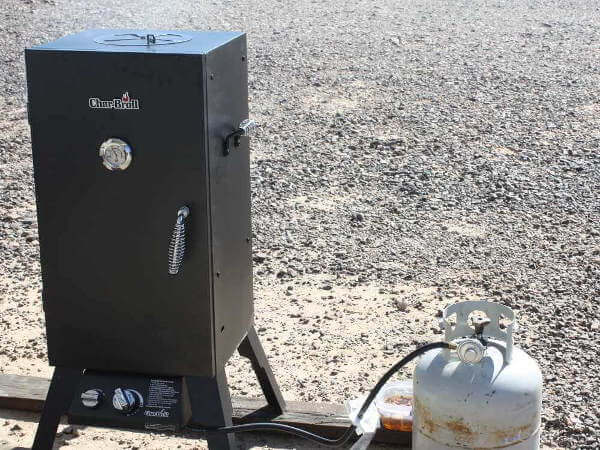
Weather can wreak havoc on a meat smoking session. In some areas, the weather can change in no time flat.
In windy weather, try to keep the meat smoker on the downwind side of the house, blocked from that breeze. You can build a smoker enclosure to block the wind even more. Wind can make temperature regulation difficult.
Breezes fanning the outside of the smoker can suck up the heat, requiring a hotter fire. But when that wind dies down, the temp can shoot up, so it's important to watch 'er closely when the wind blows.
Another potential problem is that if the air-intake side of the smoker is catching the breeze, the flame can be fanned, overheating the smoke chamber. Main thing is, when windy, watch the smoker closely.
Rain is another issue that can cause problems. A drenching downpour can be a real mess. If the smoking session is in progress and a thunderstorm moves in, try to find a patio umbrella to block the worst of the rain.
A light rain isn't too much of a problem, though. Your smoker will lose a little heat, but you can compensate with a larger fire.
Whatever you do, do not use your smoker in a garage to get out of the weather. Even if the garage doors are wide open, the end result can be catastrophic. If you're lucky, you'll just burn down the garage.
Worst case is you'll collapse and die from carbon monoxide poisoning. Not a happy barbecue, I'd say.
Fuel Tips
If you smoke with natural gas, propane, or electric power, the secrets are obvious. The biggest fuel problems you'll have, will be running out of propane just when you need it the most (happens to all of us), having a wicked storm knock out the electricity, or not paying the gas bill and getting shut off.
So the big secrets here are, pay the bills, keep a spare filled propane tank on hand, and don't smoke when all heck is forecast to break loose from the sky.
Lumps of Charcoal Information
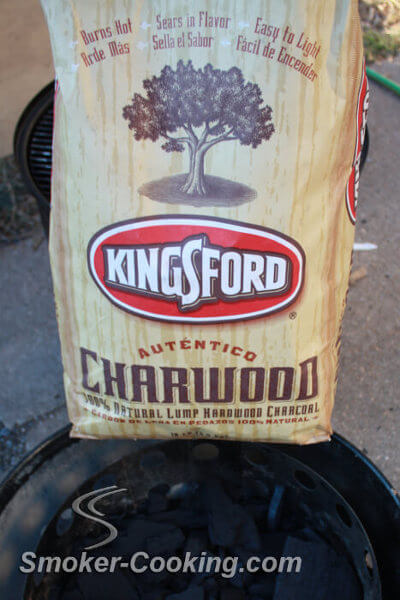
Charcoal is a great fuel for smoking meats, poultry and fish. It's convenient, relatively inexpensive and can be bought about anywhere. However, there can be a lot of inconsistencies between brands of charcoal.
Some burn hot and fast, others just don't want to burn at all. Your best bet is to try a quality name brand charcoal briquette, and stick with it if it works for you. Each brand is a little different in its burn quality, and once you're used to one type, your smoking will go a lot smoother.
Cheaper brands of charcoal can be variable in quality from bag to bag, so beware. You might get a discount bag that works perfectly, but the next one you get literally sucks.
The purists' meat smoker secret is to use lump charcoal, and it can work well. There are none of the fillers and additives in lump that are found in the briquettes. Just pure wood. But look at the wood closely and you may see pieces of charred lumber mixed in the bag. Normally that's not a concern.
Many lump charcoal manufacturers get scraps from furniture manufacturing companies, and are very picky about the type of woods they accept. Oak scraps are just fine, but softwoods like pine, fir and spruce are a no-no.
There's really no way of knowing for sure, but if you're concerned, remove the lumber charcoal.
Smoker Wood Tips
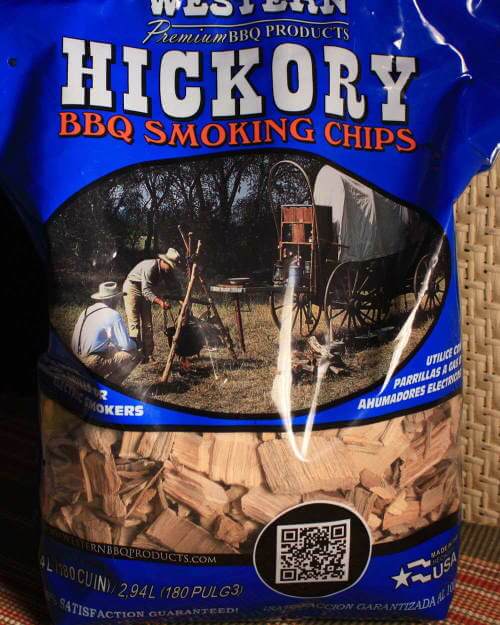
With wood, the main thing is to use good, dry wood that hasn't rotted or become infested with bugs. Stay away from softwoods, and stick to hardwoods, nutwoods and fruitwoods. With most of these, you can't go wrong.
Smoking woods follow the same train of logic. Each one has a different essence to some degree. Try to stay away from smoking wood that's more than a couple of years old. Make sure that it's solid and heavy, and don't split it until it's time for some smokin'.
Recipe Tips
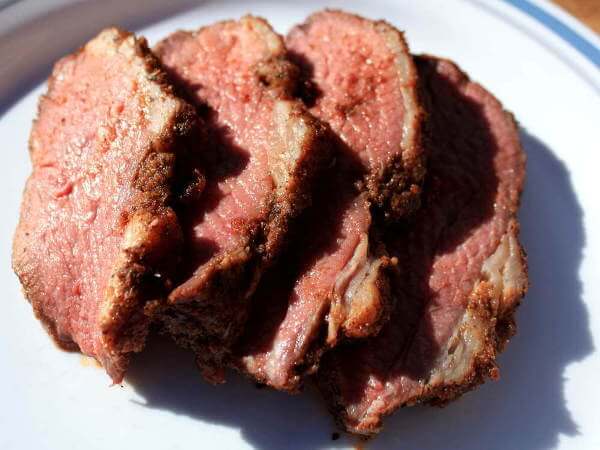
There are millions of great recipes out there. Each set of taste buds senses things a little differently, so that a recipe that's considered the cat's meow to one person is something out of the cat's other end to another.
Experimentation and practice are the two factors that will turn a good recipe into a real winner that lots of people will enjoy. And don't be afraid to throw something out of the ordinary into the mix. I remember years ago hearing that peanut butter was the secret ingredient to winning chili recipes.
Hard to believe, but you gotta realize that a small amount of a flavor added to a dish can really fill in the empty spots. The flavor can be there, but you can't really place it or recognize it.
- You Are Here: Home >
- Tips >
- Smoker Cooking Secrets
